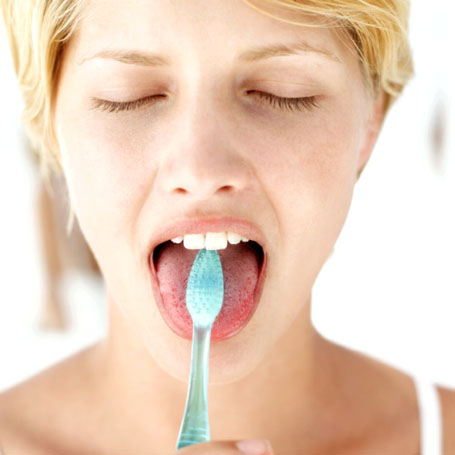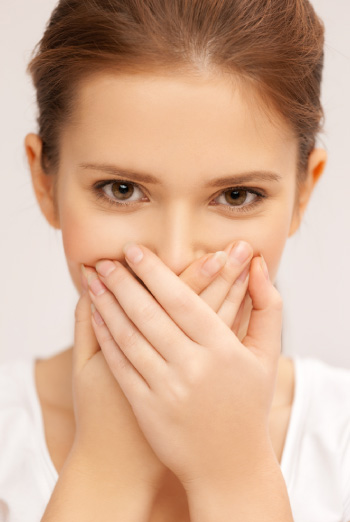
Halitosis, bad breath or morning breath – these are terms that indicate bad breath you have in your mouth when you wake up in the morning. Halitosis itself is not a severe problem, but is a sign of poor oral hygiene and often an obstacle in communication.
Causes of halitosis
Most commonly bad breath comes from food particles that stick to your teeth. When food remains in the mouth, it is a suitable place for breeding bacteria that cause bad breath. It is the result of poor oral hygiene, improper cleaning of the teeth, gums diseases, and the use of cigarettes. Other causes may be problems with the stomach, lungs, blood circulation.

Halitosis is two types:
Physiological and Pathological
Physiologic one is due to rotting processes in the oral cavity and is connected to the rear part of the back of the tongue. In this case, no specific disease that it causes.
Pathological halitosis is of two types: lip – appears in diseases of the tissues in the mouth lining, the teeth (caries), gum (periodontal disease), and outside the mouth – comes from the nose (rhinitis, polyps), paranasal sinuses (sinusitis), tonsils (angina), lung or stomach disease in the body, blood smell is transferred and is excreted by the lungs when exhaling. Most often, such diseases are diabetes, liver cirrhosis, uremia, internal bleeding. So if you suffer from bad breath, there is an urgent need to visit a doctor and dentist.
There is also a neurogenic halitosis. It is temporary and occurs under stress, exhaustion and dehydration. The best news about it is that by removing the stimulus, odor disappears.
Bad breath is often not felt by those who broadcast it, but the by reactions of surrounding people, patient realizes that something is wrong. Since 80% of the sources or causes of halitosis are in your mouth, you should know that somewhere there are entrenched putrefactive bacteria. They are about 650-700 species. Shelter of them are interdental spaces, rough side of the tongue, pockets in the gum. These bacteria release sulfur compounds that cause bad smell from the mouth.
Why do you have bad breath and how to treat it?
And also, though more rarely – dry mouth. When this process of salivation is impaired causes overcoming the natural ability of oral self-cleaning. Saliva washes oral bacteria. Consuming alcohol, taking certain drugs, breathing through the mouth instead of through the nose or problems with salivary glands also cause dry mouth and cause the bad breath.

How to fight halitosis?
Brush your teeth or rinse your mouth with water after each meal. This will remove food residue from your mouth.
When brushing your teeth with a brush, rub gently the tongue. It is covered by thousands of tiny fibers, which stick bacteria.
Avoid drinking alcohol and caffeinated beverages create dry mouth.
Chew sugarless gum – it will speed up salivation.
Quit smoking. Tar and nicotine stick to the teeth, tongue and inside of the cheeks. They dry mouth and distort the process of salivation.
Avoid mouthwashes that contain alcohol or menthol. They actually make things worse as only temporarily remove odors and dry mouth cavity. That way it creates more favorable environment for the multiplication of bacteria.
Eat raw celery and carrots – they prevent the formation of plaque.
Baking soda used for centuries to maintain good oral hygiene and fight bad breath. Rub gently with a little soda teeth and gums every day.
Chlorophyll is a natural breath freshener. To take advantage of its properties, consume green leafy vegetables – such as parsley.



























